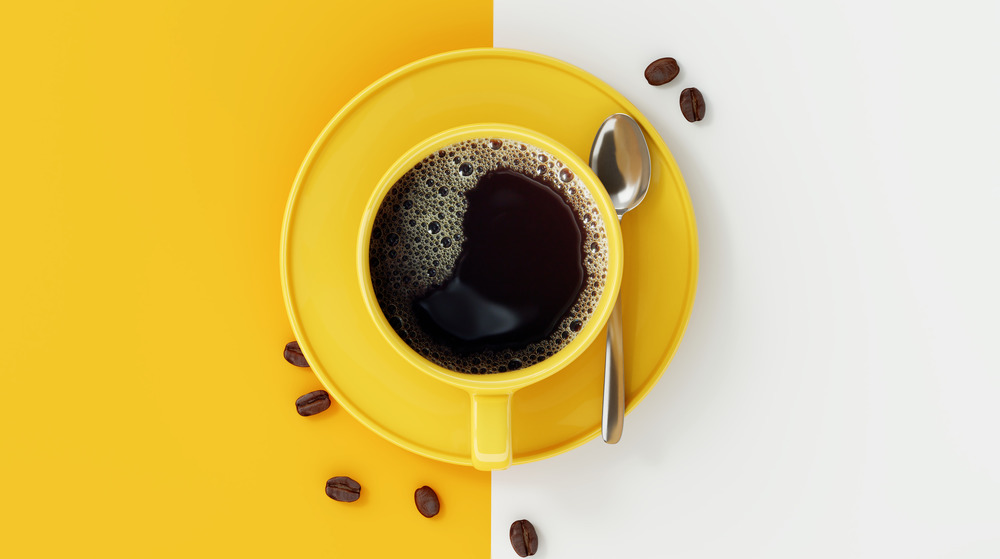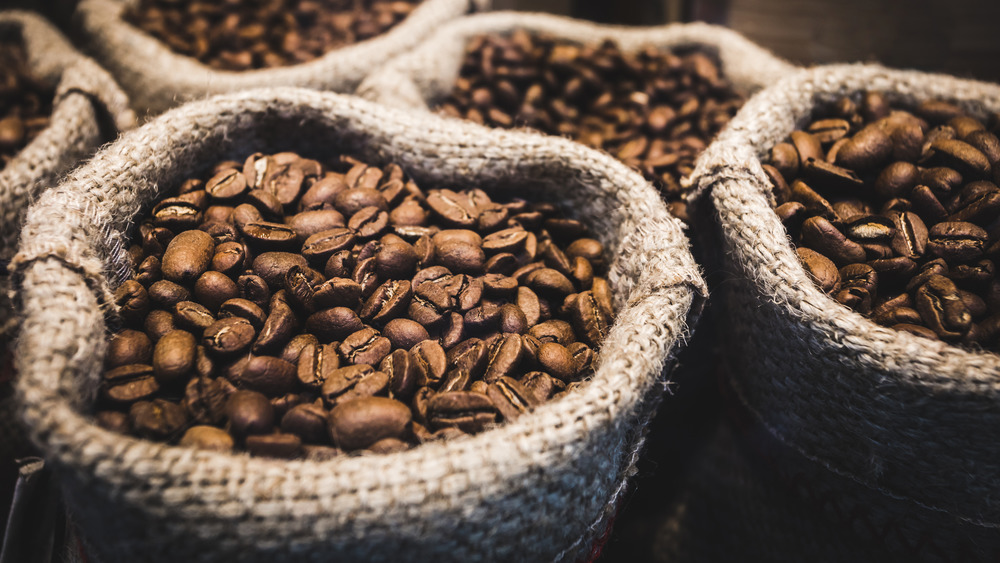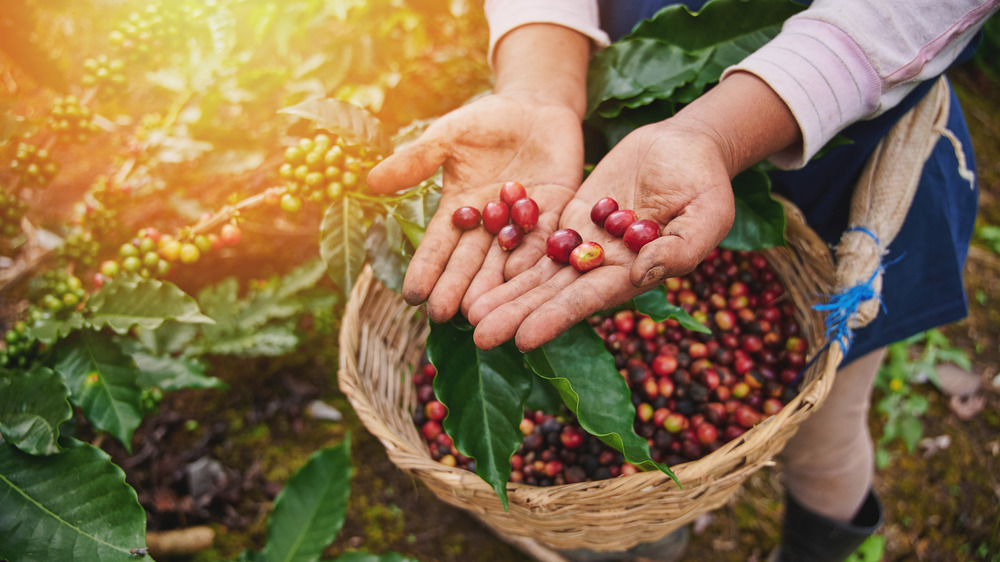Coffee Is Probably About To Get More Expensive. Here's Why
In many ways, coffee makes the world go around. Apart from being a pretty big business in itself, it's the go-to stimulant of the Western workplace, so there's no telling just how much of our economy it fuels on a daily basis. Besides, though whether coffee is actually good for you or not is a matter of seemingly eternal debate, there's just something about the smell of freshly ground high-quality coffee beans that makes you yearn for a cup of piping hot joe.
Unfortunately, all of this may be about to change — or, at the very least, get a lot more costly, according to Yahoo! Finance. Certain worrying developments indicate that coffee's days as your favorite relatively inexpensive stimulant may soon be over, and that's not just because you're about to get hooked on some colorful coffee chain creation that costs $11 per cup. Here's why your favorite bitter liquid may get a whole lot more expensive.
The supply chain for coffee is getting increasingly strained
Supply chains for coffee have been facing some difficulties, per Yahoo! Finance. The U.S., as you can probably imagine, is usually very good at having a nice, big pile of coffee in order to make sure that everyone is able to stay just as caffeinated as the situation requires. Unfortunately, we live in unusual times, and that stockpile is now smaller than it's been since 2015. Normally, this would be just a matter of buying more from, say, Brazil. The country is all set to deliver, too — there's just nothing to deliver it with.
Per Deutsche Welle, the world of supply chains is currently dealing with an acute lack of shipping containers, thanks in part to the ongoing COVID-19 pandemic and the increased shipping needs the assorted lockdowns have caused around the world. Though there is coffee, and buyers who want it, the two are currently separated by a significant geographical distance, and until the shipping container bottleneck is resolved, the situation may remain as such.
At the moment, multiple operators say they're unwilling to raise the price of coffee for the consumer. However, the shortage in the years 2021-22 is estimated to be over 10 million bags of coffee. This is compounded by the fact that Brazil's recent crop was weather-damaged back in the fall. With the buffering stockpiles rapidly dwindling into stock anthills, coffee futures have already started to rise.
Global warming is making coffee difficult to grow
The logistical issues surrounding coffee don't exactly spell "nice, half-price lattes for everyone." Unfortunately, they might be just the tip of the gloom iceberg. According to Yahoo! Finance, for now, at least some operators in the coffee industry are still reportedly working with contracts that were made before the current crisis hit, so the vendors aren't soaking up the rising costs quite yet. However, this could change when they're eventually renegotiated and the changing market is taken into account. What's more, the world will eventually open for business again, and the demand for coffee may shoot through the roof. Since production is expected to dwindle, things might get complicated.
In fact, on top of all of the above, global warming might be gearing up to deal the kind of blow the coffee-craving world will find very difficult to recover from. In fact, scientists say that a global coffee crisis is coming, because the increasing temperatures are steadily making many of the world's coffee farms simply too hot to yield a proper crop. Not to mention, coffee leaf rust, a plant disease that has decimated crops from Hawaii to Central America, is driven by climate change (via Food and Wine). According to Vox, experts say that by 2050, "the amount of land that can sustain coffee will have fallen by 50 percent." Exactly how expensive coffee will be in the future is anyone's guess ... but things don't look all that great.


